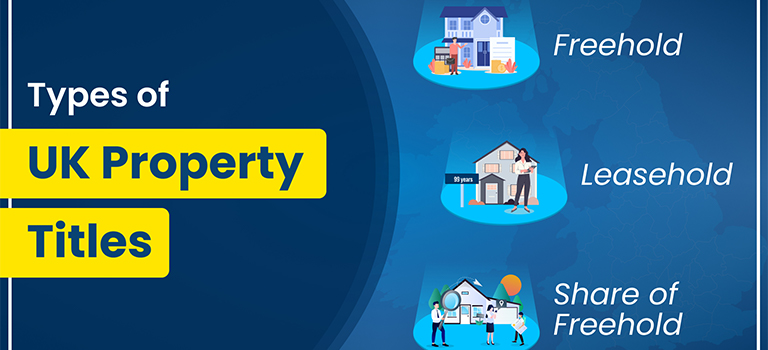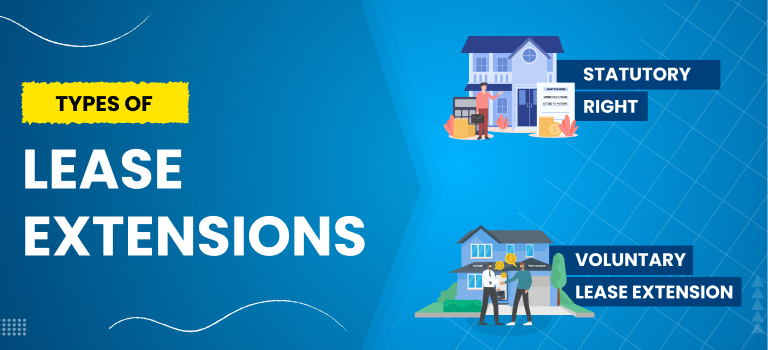Types of UK property titles
- Landlords
- 09.05.24
- Benham & Reeves
Understanding London’s various residential property titles is important for Malaysian investors and owner-occupiers seeking to acquire UK property. Due to the historical British colonial rule in Malaya before Malaysia’s independence, property laws in Malaysia share significant similarities with the UK – providing a sense of security for most Malaysian buyers.
In this guide, we focus on three main common residential titles found in London properties:

a. Freehold
b. Share of Freehold
c. Leasehold
Whether you’re an investor looking for an investment asset in London or a homeowner exploring purchasing a holiday home, understanding your property’s title provides knowledge of expected holding costs and the importance of arranging a lease extension in the future if it is a leasehold property.
Freehold
A Freehold title grants investors/homeowners more freedom of use and rights than a leasehold over the land and the building situated on it, similar to Freehold titles in Malaysia. Therefore, the owner is referred to as the Freeholder. Affordable Freehold residential properties in London are often found in areas farther from the city centre, mainly in residential neighbourhoods. Land in Central London has a high asking price, due to its proximity to prime commercial hubs, access to cultural & educational districts. The Freeholder have rights to decide what they can do with their property within council regulations, and bears all responsibilities related to the expense & maintenance of the property, including maintenance of the roof, road, easements, building structure, gardens, etc.
Share of freehold
Share of Freehold is commonly found in conversion properties in London. As land prices rose in prime London areas, property owners saw an opportunity to make homeownership more affordable by dividing larger terraces or family homes into multiple properties. However, it’s important to note that having a Share of Freehold here is quite different from owning the Freehold of your own house. It’s also worth noting that a Share of Freehold properties can also exist in larger blocks, such as those with 20 or more leaseholds. In such cases, each leaseholder typically holds an equal share in the Freehold company. The title is then transferred to the new owners, who purchase a parcel within the conversion building by way of shares of the land.
These new owners now own a share of the Freehold and have shared rights over the land on which their apartment building is situated. This is the closest comparison to what Malaysians know as Strata Title, where owners of Freehold Strata property in Malaysia own a right to the Freehold title status and the communal areas within the development. Recent UK regulations that eliminate ground rent charges for Freeholders, effective 30 June 2022, have piqued the interest of smaller developers in providing this title to buyers. While there may be no significant difference from a building management perspective (compared to leasehold properties for a bigger development), one may still incur potential renewal costs depending on the terms outlined in the title.
Leasehold
Under Leasehold titles, leasehold property owners (also known as leaseholders) have rights to their unit or parcel for a predetermined period set out by the Freeholder. For new builds, lease terms typically range from 125 to 999 years (also known as virtual Freehold). These periods are considerably longer than lease terms in Malaysia, which usually max out at 99 years. Most apartment developments in London are leasehold titles due to land scarcity. Freeholders prefer to retain ownership of the land while allowing developers to build on it and sell properties as leasehold titles to address the housing shortage in the city. Leaseholders can access communal areas (depending on the development’s size). They are responsible for paying service charges to ensure funds are available for proper building management by appointing a building management company.
Leaseholders have access to all the communal areas of the development (depending on how big the development is), as well as the responsibility to pay for service charges to ensure funds are available to properly manage the building through the appointment of a building management company. It is very common to renew leases in London, as some areas in London have no affordable new builds, or the new build is too expensive. If you have found a good property in Central location but on a low lease, this can be renewed through the agent marketing the property, by applying consent from the freeholder and council with the renewal fee.
If a property in central location has a short lease, typically under 60 years, negotiating a lease extension should be considered to be part of the deal, and usually the agent facilitates the negotiation with the seller on the buyer’s behalf, taking into account the estimated cost involved for the lease extension.
There are two main types of lease extensions:

● Statutory right (serving a section 42 notice): This grants the leaseholder the right to extend the lease by 90 years and reduce the ground rent to a peppercorn rent (a nominal amount). To qualify, the leaseholder must have owned the property for at least two years and can then pass the right under the notice to the buyer.
● Voluntary lease extension: The owner negotiates directly with the Freeholder/landlord on the lease extension terms. The landlord/Freeholder does not have to agree to any negotiation, in which case, the statutory route becomes the only option.
Services by Benham & Reeves Malaysia:
Our team in Malaysia are trained with knowledge of both Malaysian and UK properties as part of the renowned Benham & Reeves network in London. Led by Melvin & Michelle, both registered real estate professionals, they understand the differences between property titles in Malaysia and the UK. Whether you want to acquire or inquire about after-sales services such as lettings, property management, tax returns, or sales valuation, contact us today for a consultation.
If you have any questions about titles or properties, kindly send your inquiries along with your contact details below:
Enquire now
About the Author
Established in 1958, Benham and Reeves is one of London’s oldest, independently owned property lettings and sales agents. With specialism in residential sales, corporate lettings and property management in prime areas of London, the company operates from 21 prominently located branches and 14 international offices.View all posts by Benham & Reeves
